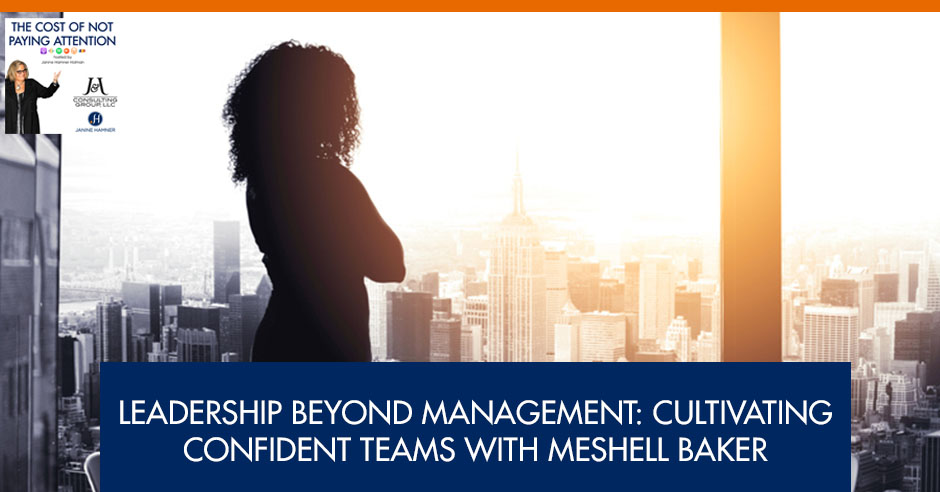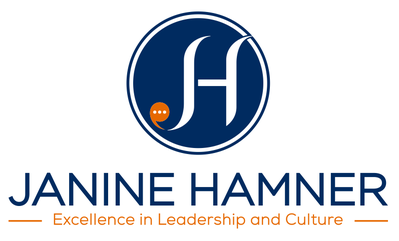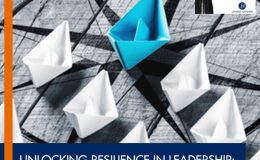
Confidence isn’t something you’re born with, it’s a skill that can be nurtured. By shifting your mindset and taking action, you can approach life with greater courage. In this insightful episode, Janine Hammer Holman sits down with Meshell Baker to discuss the vital role of leaders in cultivating confidence within their teams. Meshell discusses how effective leaders go beyond traditional management roles, inspiring their employees to embrace challenges and think creatively. Together, they convey that creating an environment where employees feel confident and valued leads to outstanding outcomes and a thriving workplace culture.
GUEST: Meshell Baker | [email protected] | LinkedIn, Facebook, and Instagram
HOST: Janine Hamner Holman | [email protected] | LinkedIn, Facebook, and Twitter | Subscribe to my Newsletter! | Book me to Speak!
—
Listen to the podcast here
Leadership Beyond Management: Cultivating Confident Teams With Meshell Baker
Introduction
Janine: Welcome to The Cost of Not Paying Attention. I’m your host, Janine Hamner Holman. Our guest today is an amazing woman, Meshell Baker, the Chief Confidence Igniter. She empowers business owners, leaders, and sales leaders around the globe to ignite confidence belief and enable their people to develop high performance resilience and unstoppable confidence. She is renowned for her value-based, no-nonsense approach that generates unprecedented results. Welcome to the show, Meshell.
Meshell: Glad to be here, Janine. Excited for our conversation.
The Problem Of Inattention
Janine: I’m excited too. What is one thing you have realized within your business or with clients that either you or they have been failing to pay attention to? And what’s the cost of that inattention?
Meshell: This question is loaded because there’s so much more than just one thing. But what comes to mind is the understanding that nobody actually wants to be mediocre. People don’t choose to be lackluster. Employees who underperform would prefer to be top performers given the opportunity. So the void or the vacuum is leadership.

Cultivating Confidence: Nobody wants to be mediocre. Nobody wants to fail. Given the opportunity, people would not choose to be mediocre or lackluster.
Drilling Down On Leadership
Janine: Oh my gosh! Tell me more! When you say “leadership,” what specifically are you thinking about?
Meshell: There are lots of managers and supervisors in the business realm who follow a process to tell people what to do. Leaders inspire and influence people to be their absolute best, allowing them to deliver incredible outcomes in difficult circumstances. When you manage somebody, they don’t know how to operate in difficult circumstances because they’re following a guideline. Leaders empower people to creatively, critically, and curiously think and be bold and brave in the face of challenges, getting excited about delivering even under unexpected, unplanned, or sudden changes. They help people to not freeze or go into fight-or-flight mode.
Leaders inspire and influence people to be their absolute best, allowing them to deliver incredible outcomes when faced with difficult circumstances. Share on XBuilding Confidence
Janine: We are in a time with so much change happening. I heard the CEO of Korn Ferry, the think tank, say recently that we have undergone more change in the last four years than any other period in our lifetimes. We are all dealing with burnout, overwhelm, and high degrees of change. If there’s one thing I know about the human mind, it’s that it doesn’t like change. Our brains are wired to get around and minimize change. We like the status quo. But we don’t grow at 72 degrees. We grow through challenges. How do leaders respond to these situations, and what does that call forth from us in terms of confidence?
Meshell: Great question. Faced with constant change, how does a leader help their people to implement and be valuable?
Janine: And how can leaders empower their team members to think more critically so it’s not always A situation equals B solution? How do we get our people to think more creatively?
Meshell: Yes. Exactly. And even as I said earlier, critically, creatively, curiously- I would lean more into creativity and curiosity because that bolsters confidence. Critical is shortened to critic, and that’s just another term for “imposter” which elicits fear and anxiety and the possibility of getting it wrong. We want people to lean towards is the possibility of doing something better, not getting it right. Improving the process. People are scared to learn because they fear failure, and there is no success without failure.
When I’m working with clients everyone wants to show up as their best. They want to talk about he win, but that’s not as interesting to me as what did you have to work through and recover from? Creating space for people to embrace the learning process is lost. We live in a scripted society, but real life isn’t scripted. Everyone is practicing and showing up at their best. Reality TV is scripted, and social media portrays perfection. Emotional intelligence and positive psychology help people become more creative, curious, and confident.

Cultivating Confidence: People are scared to learn because they fear failure.
When faced with difficulty, change, challenges, setbacks, or critics, remind yourself that it’s just a feeling. Choose to believe you will be successful. Your mind will create and curate on your behalf immediately. We can either focus on one problem or choose infinite possibilities.
Janine: I love it. Part of what I love about you is your story of how you got to focus on confidence and igniting confidence in others. Would you share that story with our listeners?
Meshell: Sure. Where would you like me to begin?
Janine: How you realized you had a problem with confidence because you thought you didn’t, right?
Meshell: I was confused by the fact that I was doing everything I thought I should do and was unhappy. I could do all the things in the workplace, but personally I was so dissatisfied and unfulfilled. I was not confidently following a path of my own making. I was doing what I thought I needed (or should) to do. I was following the prescriptive: get a job, get a promotion, buy a house, get engaged. It was lackluster, and I found myself locked into a way of living because now I have all the debt. I believe it’s very intensional to create consumption that we get people locked into a way of living and then they don’t feel the freedom to actually follow that would bring them something more purposeful.

Cultivating Confidence: Do something that fulfills you. When you do work you cannot stand, you have already decided on a miserable life.
Raised in an urban environment with abusive situations, I had low self-worth and followed anyone who gave me affection or affirmation. I didn’t feel I was worthy of being smart. I couldn’t hear what teachers were saying to me because I was just lost in low self worth. I ended up incarcerated at 20. After that, I was hyper-focused on how people stay out of prison, how to keep a job. I decided to be valuable instead of trying to get people to like me. Doing good work became my standard of excellence.
At every employment juncture, mentors showed up who saw what I was doing and wanted to help. That’s how I went to Howard, got a degree, worked at companies like Clorox, Johnson & Johnson, and Thermo Fisher, and then stepped out when my disabled sister needed care. I was unable to balance the travel, demands of work, and demands of her care. And, I attended a women’s networking meeting, heard a speaker talk about vision versus goals, and realized I was chasing performance, not purpose. I chose my purpose and never looked back.
On my entrepreneurial journey, I realized I cared what others thought about me. I was not confident. Going back to the source, I recognized that everything I need is already within me. Most of us are not taught to ask why we are here, what we truly want, what would be fulfilling? That’s the work I do. When I work with teams, the first thing is to ask what success looks like for them as individuals and see if it aligns with the organization’s goals. If it doesn’t, it’s not a bad thing; it means there’s another path.
Janine: I love it. Many of us struggle with confidence in some domain or another. If any listeners out there realize they struggle with confidence or if a leader has an employee struggling with confidence, what can they do?
Meshell: Great question. First, there’s the university of YouTube and Google. Type in “how do I get more confident?” and start watching videos. Your brain doesn’t know the difference between a real-life experience, a memory, or a vividly imagined future. Most people struggle with confidence because they replay past experiences instead of reimagining them as favorable. Reimagine how the next time that emotion or trigger comes up, you will walk away feeling good about yourself, powerful, confident. It’s about having conversations with people about how you will be better next time. Stop victim talk and start having victorious conversations. Start having conversations about, “This is what happened AND this is how I will rectify the situation.” This is how I will be better next time. This is how I’ll address it next time. This is how I will respond next time. In a very confident manner. It’s not about being better than someone or getting even or getting back at someone. It’s simply about standing in a confident space. So when you’re confident your confidence leans into other people and inspires them. If your only goal is to get back or get better than someone, then you want to put someone down and that’s not better than the other way. You didn’t like the way it felt when you walked away feeling lackluster, so why would your intent be to do that to someone else? Why not create and conversation where you feel inspired and empowered and somebody else does too.
It's not about being better than someone, getting even, or getting back with someone. It’s simply about standing in a confident space. Share on XJanine: Much healthier all the way around.
Meshell: I recently did a video on the paradox of disrespect, which happens in the workplace. Disrespect is not given; it’s received. You can’t be disrespected unless you decide you are. No one can disrespect you without your permission. It’s a misnomer. If they didn’t touch you, they can’t disrespect you.
Janine: So let’s tease that out. In that situation where let’s say I am a mean person, or just having a really bad day and I say something that sounds inherently disrespectful to you, about you, would you work to reframe that?
Meshell: Great question. Sitting here without it ever happening it would be disingenuous because what happens is as you do this work, the confidence work, your brain will create it’s own interpretation. And what it illicits on your behalf for every individual will be different.
Handling Disrespect
Meshell: So sometimes when somebody says something, I may respond with, “That was an interesting way to say that. I don’t know how to interpret that. I’m going to need you to say that again in a different way.” Disrespect is just a combination of negative words. My brain interprets it as a hurting person saying hurtful words. Something has happened to them that they are choosing to use disempowering words when they speak to me. So what is wrong with them, not me? When you interpret disrespect, you decide to be hurt, and that brings negative energy. I choose positive energy.
Janine: We are living in a polarized world where everyone feels disrespected at the drop of a hat. What you are speaking to is a radical way of being, for any human being, especially as a black woman.
Meshell: I can give an example. I was on a call earlier today with a group from an online event for leaders. They put us in breakout groups so that a group of us could get together. The woman facilitating the Zoom link confused me with another black woman who had given a presentation. I corrected her, but she did it again later. Had it not been me, it would have felt like a microaggression. I could have said, “She’s disrespecting me.” But I didn’t take it as disrespect. I just corrected her. We have a call scheduled to discuss some commonalities, which wouldn’t have happened if I had felt disrespected and put up walls. You cannot get favorable, powerful, profitable outcomes from negative, victimized thinking. I would have gone into anger. And once you go into anger you shut down creativity and collaboration, all of that is out the window. It’s about choosing how to interpret and respond to situations.

Cultivating Confidence: Once you become angry, you no longer think creatively, curiously, or collaboratively. All of that is out the window.
The Power Of Reframing
Janine: I’m super curious, and a little confronted, and interested and I have no idea how I would do that and that sounds super cool, so how can I (and our listeners) adopt that concept. “You cannot say anything that victimizes me, you can’t say anything that offends me, you can’t say anything that is detrimental towards me because I just choose not to be with it.” How can I start working on that way of thinking?
Meshell: It’s a way of being that requires changing your belief system. It means integrating and transforming your identity. It’s not about thinking of what you should do; it’s about who you are. This process is not quick. It requires time and coaching. Working with a coach like me, who helps you transform your way of being, is crucial.
Changing your being requires shaping your belief system. Share on XGet In Touch With Meshell
Janine: That sounds amazing. So if that special sauce in learning how to be that level of curiosity and Teflon, an amazing duality and people want to learn more, how can people get in touch with you?
Meshell: The best way to get in touch with me is to email me at [email protected] and request a conversation. Include in the email what you want to talk about, and I’ll send you a calendar link. You can also find me on LinkedIn, my favorite virtual watering hole for social connections. DM me there, and we can set something up. It’s about having a conversation and understanding what you need. You want your employer who’s employees say, “I love where I work.”
Closing
Janine: Meshell, this has been a delightful conversation that went in unexpected directions. Thank you so much for sharing your insights, life experience, and love of the work you do and the people you work with. Thank you for being with us.
Meshell: Thank you!
Janine: You are most welcome. I am Janine Hamner Holman, and this has been The Cost of Not Paying Attention. Remember, great leaders make great teams. Until next time.





